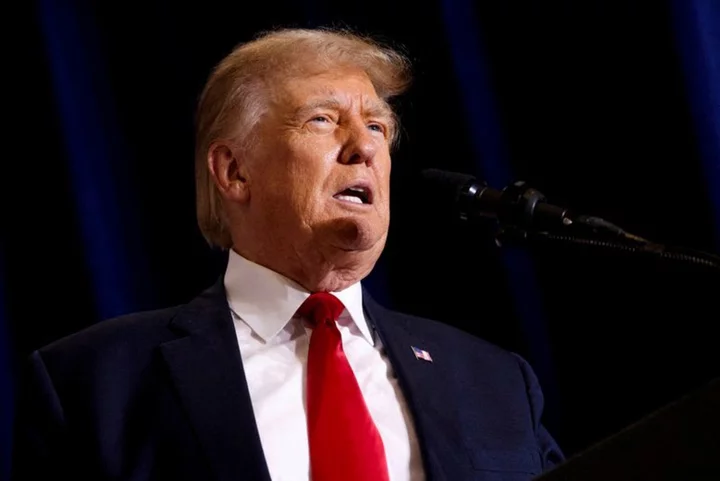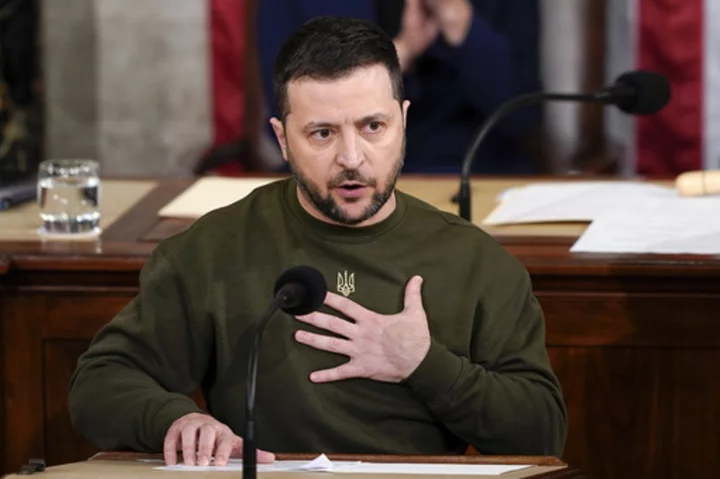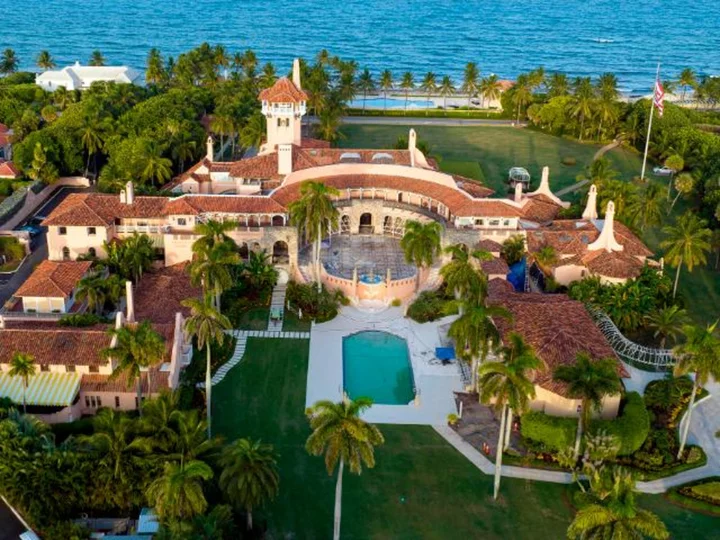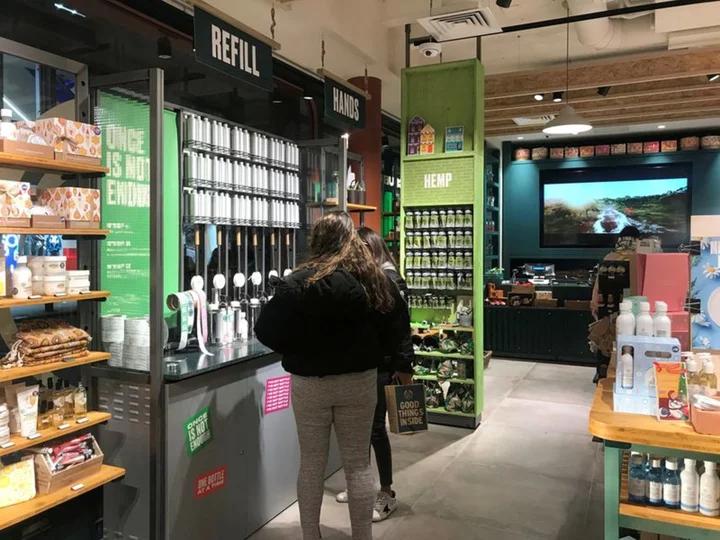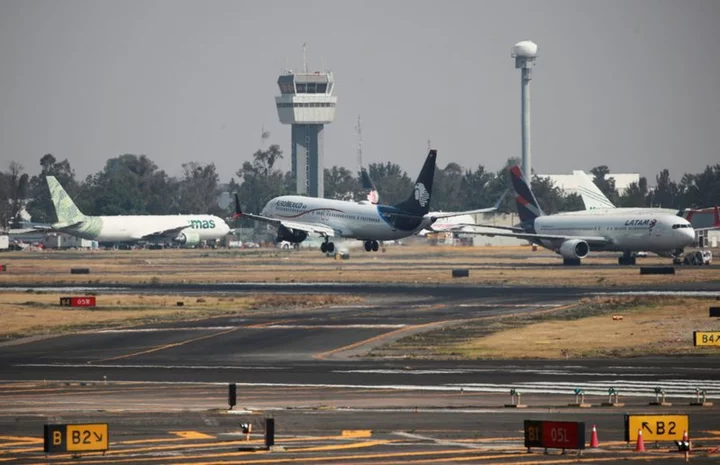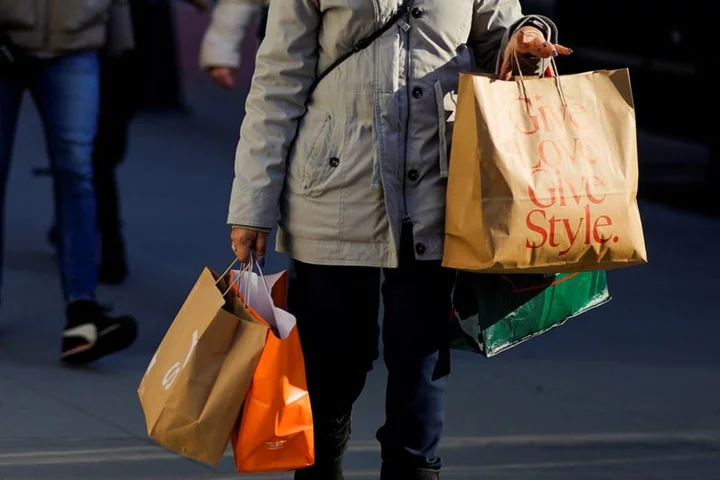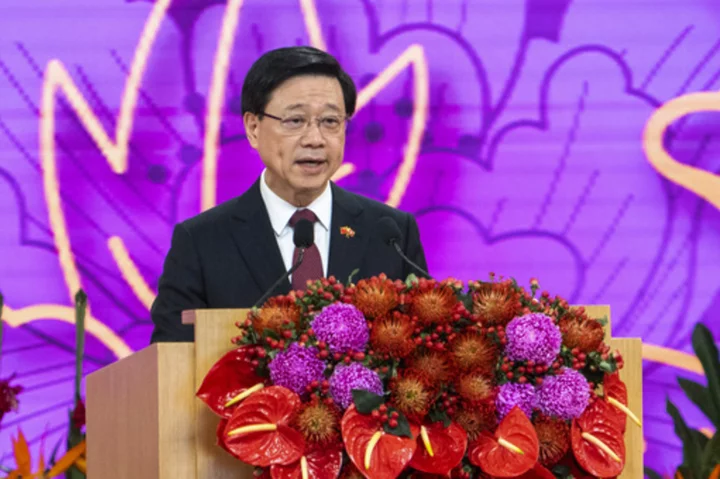By Nathan Layne and Kanishka Singh
(Reuters) -Former U.S. President Donald Trump said on Wednesday it mattered little whether striking union autoworkers secured a favorable deal in talks with America's biggest carmakers because the shift to electric vehicles would soon make them obsolete.
Speaking in terms that contrast with the confidence shown by carmarkers spending aggressively to electrify their fleets, Trump predicted the U.S. auto industry would succumb to massive losses in just a few years.
"It doesn’t make a damn bit of difference what you get because in two years you're all going to be out of business," Trump told several hundred blue-collar workers gathered at a non-union auto supplier outside Detroit.
Trump, who chose to skip the second Republican presidential debate on Wednesday night, has made attacking President Joe Biden's promotion of electric vehicle production through incentives a routine component of his stump speech.
At the debate, Trump was attacked by Florida Governor Ron DeSantis as "missing in action", while former New Jersey Governor Chris Christie mocked him as "Donald Duck" for skipping the event.
On Tuesday, Biden joined a picket line to show solidarity with the United Auto Workers union, which began its walkouts on Sept. 15, its first simultaneous strikes at General Motors, Chrysler parent Stellantis and Ford. Biden backed their call for a 40% pay raise and improved working conditions.
In response to Trump's speech, the Biden campaign called the former president a "billionaire charlatan" who didn't care about the working class but instead pursued pro-business policies that moved jobs overseas during his time in office.
"Donald Trump is lying about President Biden's agenda to distract from his failed track record of trickle-down tax cuts, closed factories, and jobs outsourced to China," Biden's campaign said in a statement while Trump spoke.
The decision by both Trump and Biden to insert themselves into the historic auto strike highlights the importance both men place on securing support from working-class voters in Michigan and other battleground states in next year's presidential race.
Trump, who appears on track to clinch the Republican Party nomination and challenge Biden for the presidency, lost Michigan in 2020 by some 154,000 votes. It is one of three Rust Belt states, along with Pennsylvania and Wisconsin, that Trump picked up in 2016 but lost in 2020, and the three will likely prove critical to both parties next year.
Jason Roe, a Republican strategist based in Michigan, said Trump was successfully tapping into angst among working class voters who feel they are falling behind economically, a trend exacerbated by the COVID-19 pandemic and inflation.
"That’s what he's exploiting. That’s what he exploited in 2016," Roe said.
U.S. automakers have complained that the Biden administration's rules promoting electric vehicles risk burdening them with excessive costs, but there is no evidence to suggest they are headed towards bankruptcy as Trump suggested.
Spurred on by incentives, automakers are sinking tens of billions of dollars into new domestic factories to meet demand for electrified vehicle sales, which captured 8.9% of the U.S. market during the first half of 2023 and continue to grow.
During Trump's 2017-2021 White House term, his administration generally sided with businesses over the interests of workers on policy matters, though some of his trade policies were aimed in part at protecting domestic manufacturing jobs.
The UAW has to date not backed either presidential candidate, making it the only major union not to endorse Biden. The UAW leadership has welcomed Biden's support, however, and spoken about Trump and his record in scathing terms.
Promising to end the government's EV push if elected, Trump urged the UAW to back him in the presidential race.
"I don't care what you get in the next two weeks or three weeks or five weeks," he said. "They're going to be closing up and they're going to be building those cars in China and other places. It's a hit job in Michigan and on Detroit."
(Reporting by Nathan Layne in Wilton, Connecticut, Singh, Kanishka Singh and Jason Lange in Washington and Joe White in Detroit; Editing by Ross Colvin and Deepa Babington)

